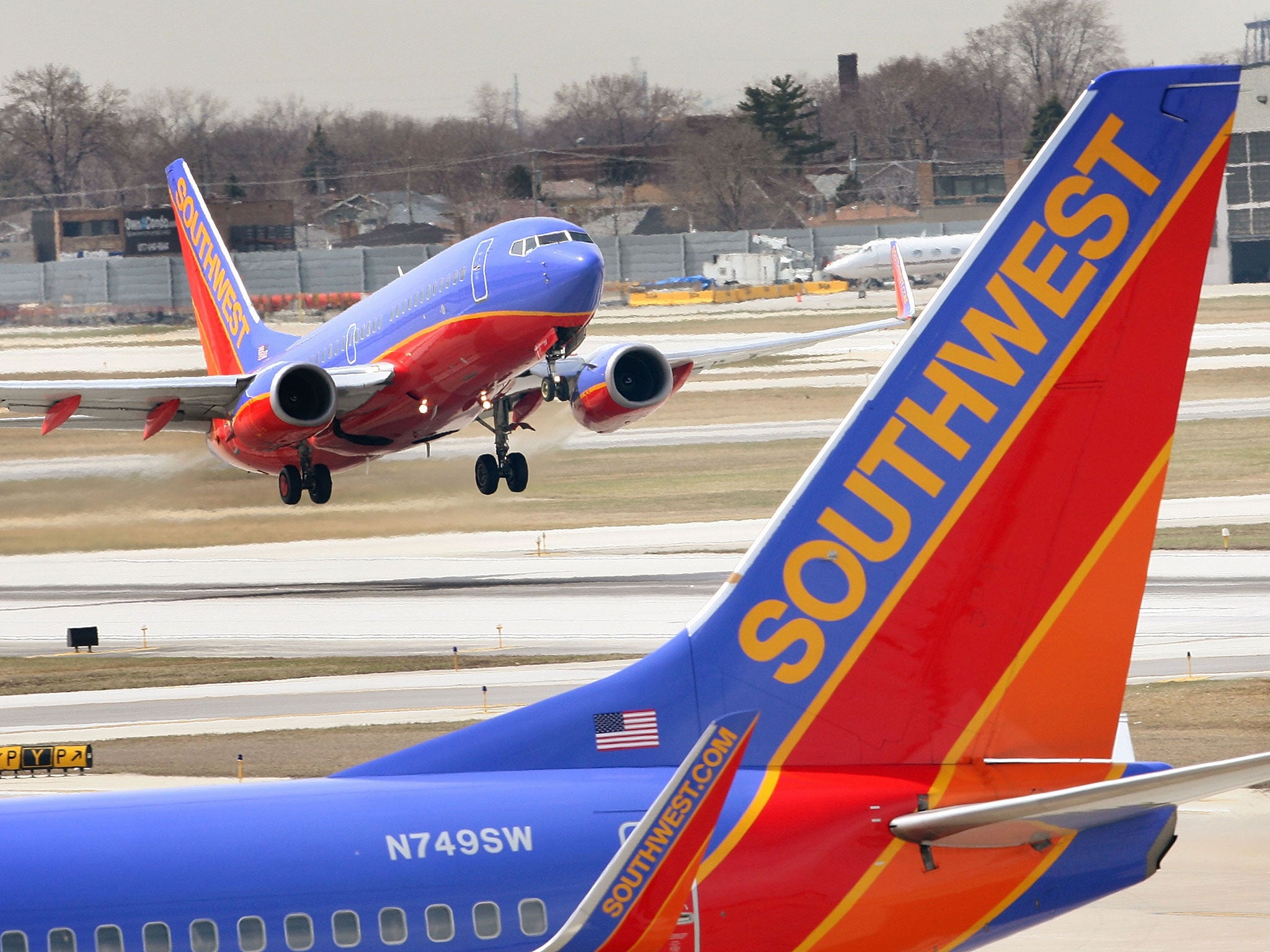Emotional support dog bites child’s face on Southwest Airlines flight
Incident caused ‘minor injury’

An emotional support dog accompanying a passenger on a Southwest Airlines flight had to be removed after injuring a child.
The incident took place prior to take-off on Wednesday 21 February, aboard flight 1904 from Phoenix to Portland, Oregon.
“Our initial reports indicate a support dog’s teeth scraped a child’s forehead as the young passenger approached the animal, causing a minor injury,” a Southwest spokesperson told The Independent.
“EMTs evaluated the child, who was cleared to continue on the flight.
“The dog and its owner remained in Phoenix as the aircraft departed approximately 20 minutes behind schedule.
“As always, the safety of our customers is our highest priority.”
The news comes after several American airlines have changed their policies regarding emotional support animals.
Delta Air Lines announced it was cracking down on the use of such animals in January, after a sharp rise in on-board incidents, including urination, defecation, biting and mauling.
The airline will require extra documentation outlining passengers’ need for a support animal, plus proof of the relevant training and vaccinations, 48 hours before a flight.
The new rules come into play from 1 March 2018 following a dramatic increase in the number of people bringing animals on board – up 150 per cent since 2017.
This has led to an 84 per cent rise in animal-related safety incidents, including a high-profile case of a 50-pound emotional support dog mauling another passenger.
“The rise in serious incidents involving animals in flight leads us to believe that the lack of regulation in both health and training screening for these animals is creating unsafe conditions across US air travel,” John Laughter, Delta’s senior vice president of corporate safety, security and compliance, said in a statement.
In the US, owners are allowed to be accompanied by their service animals in the cabin under federal law, as long as they do not pose a threat to the safety of others.
Emotional support animals are becoming increasingly common on flights, with an estimated 100,000 travelling in cabins in the US every year. Advocates argue these animals can lower blood pressure and help with stress.
Airports have also jumped on the bandwagon, with Cincinnati/Northern Ohio Airport introducing therapy miniature horses last year to help calm down stressed travellers passing through its doors. Twice a month, the check-in area gets a visit from a pair of a 34-strong team of therapy horses provided by Seven Oaks Farm in Ohio.
Join our commenting forum
Join thought-provoking conversations, follow other Independent readers and see their replies
Comments
Bookmark popover
Removed from bookmarks